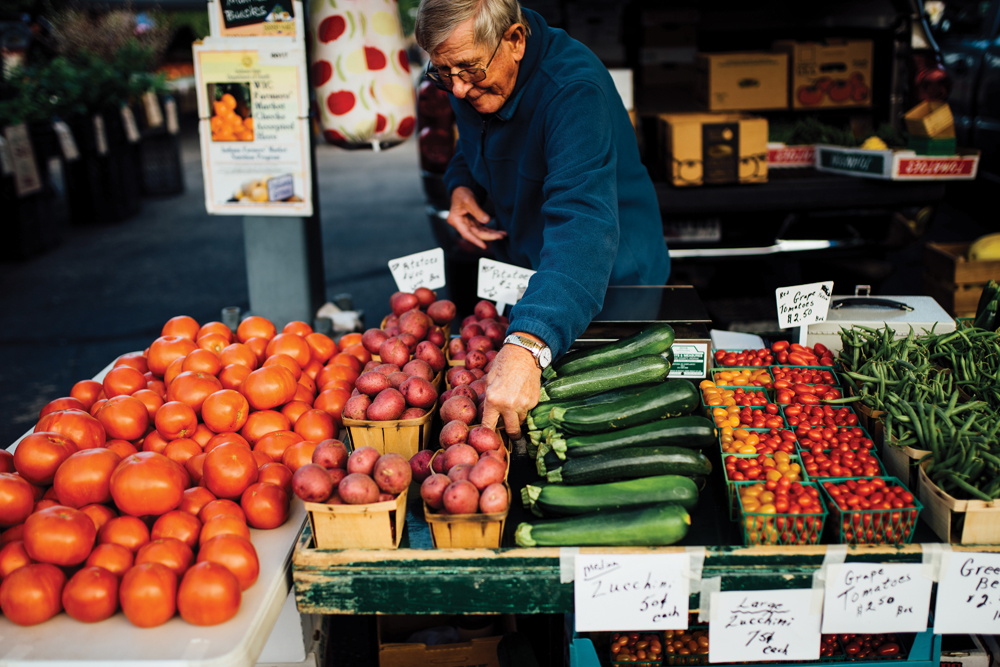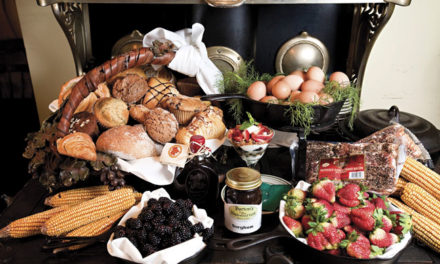
BY JANET MANDELSTAM
As part of its Sustainability Action Plan, the City of Bloomington has launched the Year of Food with two goals: increasing access to healthy food and offering more economic opportunities for local farmers.
“Research shows that 18 percent of Monroe County residents have inconsistent access to food,” says Autumn Salamack, the City’s assistant director of sustainability. “We know that there are people who have to decide between food and paying rent.”
The City will work with local organizations to assess the food needs of residents. “There’s a lot of great work happening around increasing access to healthy food, and we’re excited to work with community groups,” Salamack says. “We’re in talks with neighborhood associations in Crestmont and Countryview to bring a food and wellness fair to the community.”
“Some neighborhoods are food deserts,” says Jodee Ellett of the Indiana University Sustainable Food Systems Science project. “There’s no grocery store, only convenience stores or corner stores that sell highly processed food.” The question, she says, is how to get healthy food into those stores, where many low-income residents shop with SNAP (federal Supplemental Nutrition Assistance Program) funds.
As to increasing economic opportunities for farmers, Salamack says, “We asked how we could facilitate conversations between small and medium growers and large institutional food buyers” such as Indiana University and area school districts.
With a three-year grant from the U.S. Department of Agriculture, the City is hiring a value chain coordinator who will function as a matchmaker between local farmers and large buyers. “The coordinator will work with growers on how to scale up operations to meet the needs of those institutional buyers,” Salamack says. “It’s not just what’s available at harvest time,” adds Ellett, the lead writer for the grant. “It’s about planting to meet those needs.”
As part of the Year of Food, the City also wants to increase the number and size of gardens where food is grown for personal use or for sale. And the City is presenting a series of community events around food issues. The first, held in February, focused on food waste. A photo exhibit, “Hungry Planet: What the World Eats,” is on view at the IU Mathers Museum of World Cultures until May 1.
For more information on the Year of Food and upcoming events, visit bloomington.in.gov/sustainability/year-of-food.












